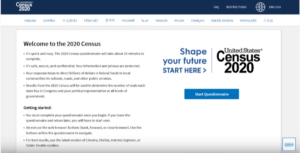Study: Educational Segregation Plays a Role in Tea Party Allegiance
A study by researchers at the University of Notre Dame teased out a positive correlation between educational segregation, which can relate to other divisive factors but isn't always interchangeable with them, and alignment with tea party ideology. Shutterstock
Shutterstock
A study by researchers at the University of Notre Dame teased out a positive correlation between educational segregation, which can relate to other divisive factors but isn’t always interchangeable with them, and alignment with tea party ideology.
As The Huffington Post explained Tuesday in a report about the study, which was published in American Sociological Review, educational and residential segregation are particularly intertwined for tea party supporters:
Researchers from the University of Notre Dame said college graduates are more likely to support tea party ideas if they live in counties characterized by high levels of residential segregation based on education level. The researchers found the correlation between tea party support and educational segregation to be uniquely strong compared to factors like racial segregation and class segregation.
Rory McVeigh, a University of Notre Dame political sociologist and author of the study, told The Huffington Post that he was interested in discovering what communities might be particularly hospitable to tea party principles and why. Prior to the study, he posited that the tea party ideology, which advocates for limited government and low government spending, might resonate more among people who don’t interact much with low-income individuals who may benefit from government programs. As it turns out, McVeigh was on to something.
McVeigh also suggested that those who have “had little exposure to people who haven’t had the same opportunities” may be more apt to support meritocratic principles like the level playing field.
–Posted by Kasia Anderson
Your support matters…Independent journalism is under threat and overshadowed by heavily funded mainstream media.
You can help level the playing field. Become a member.
Your tax-deductible contribution keeps us digging beneath the headlines to give you thought-provoking, investigative reporting and analysis that unearths what's really happening- without compromise.
Give today to support our courageous, independent journalists.





You need to be a supporter to comment.
There are currently no responses to this article.
Be the first to respond.